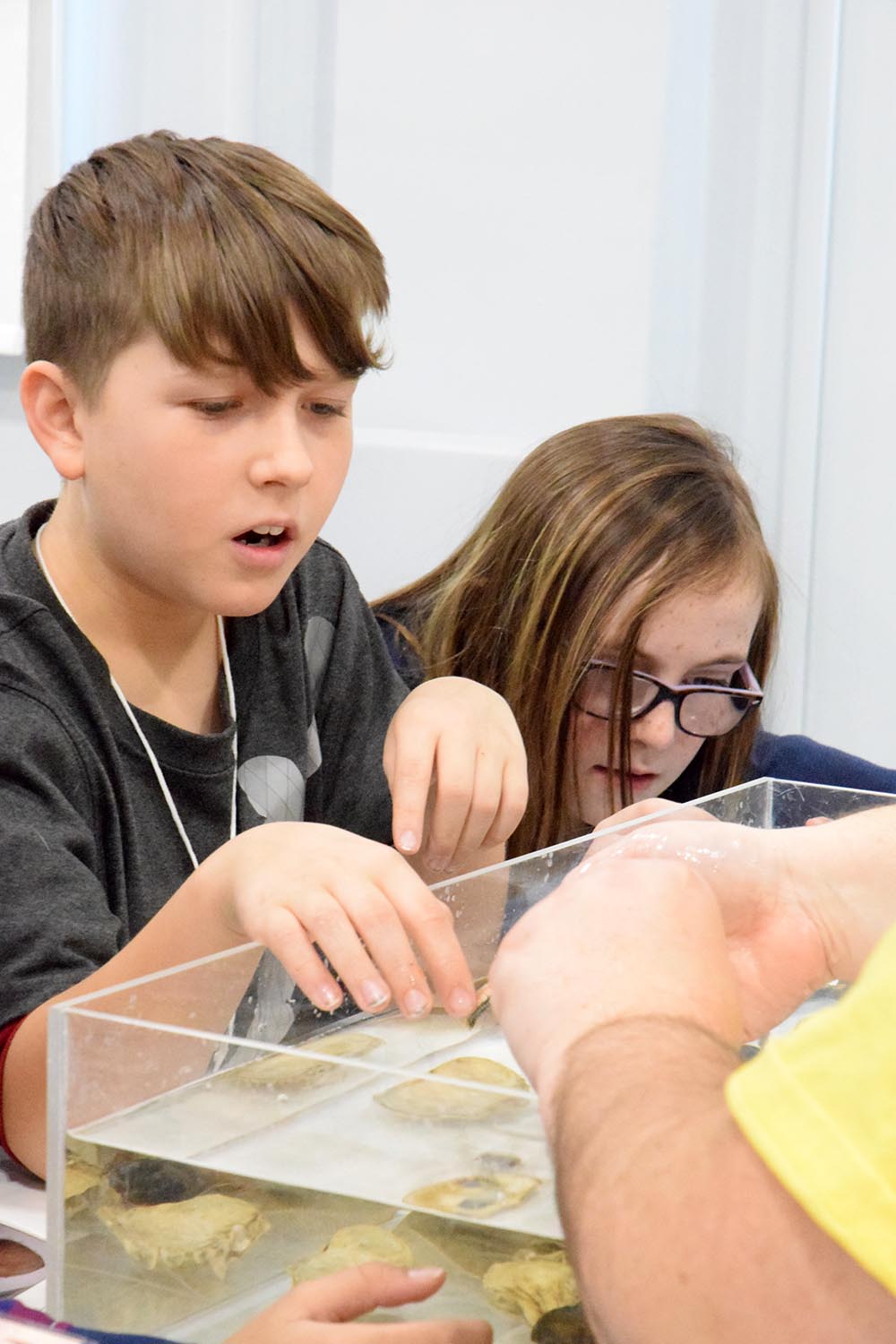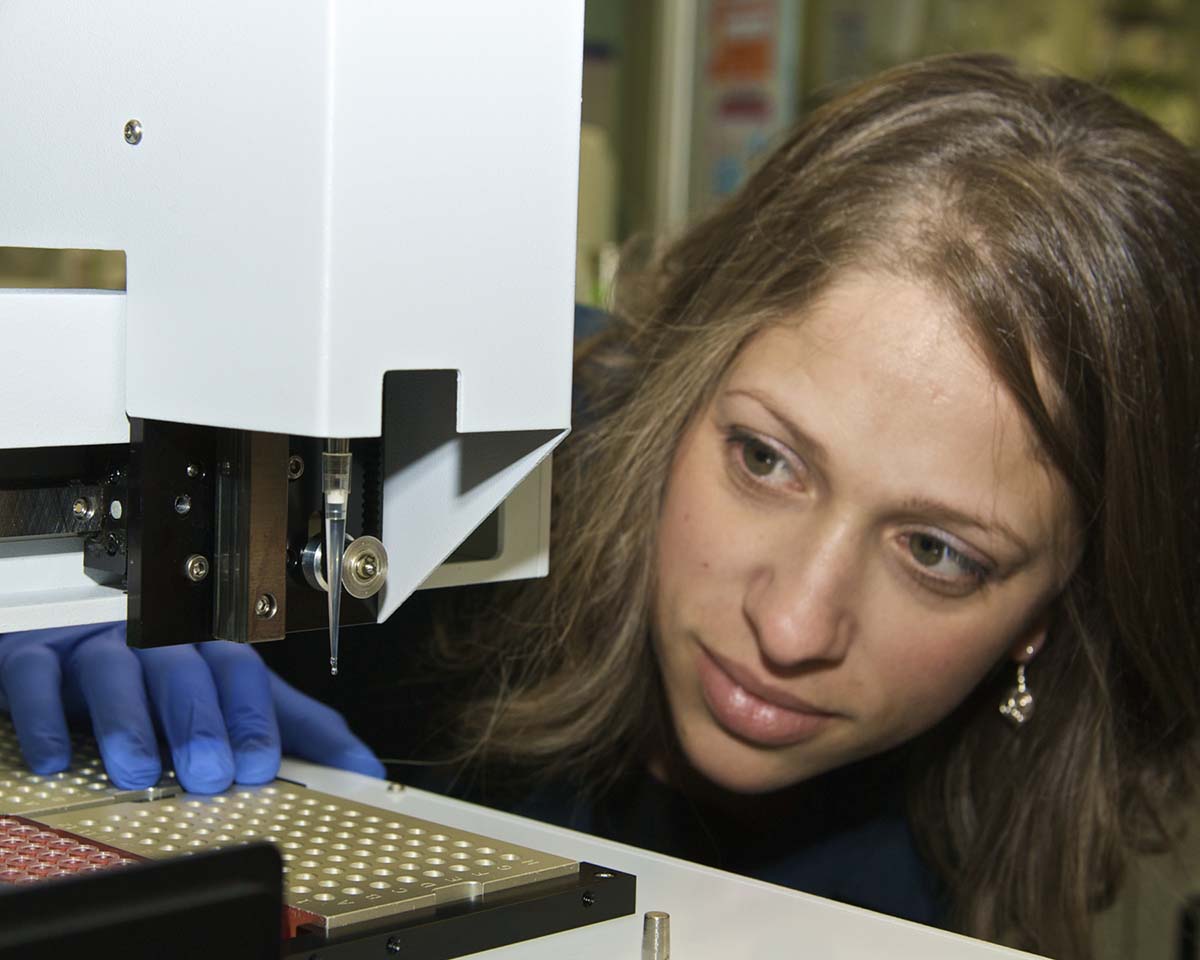Become an Atlantic Science Enterprise Centre (ASEC) partner

ASEC is a creative and scientific hub that encourages increased involvement of students as future scientists and managers of this amazing resource that belongs to all Canadians.
Photo credit: DFO Gulf
The ASEC vision
“An inclusive centre of excellence that supports innovative, world-class, collaborative research, and learning from the past while pursuing a more sustainable future.”
ASEC pays homage to the cultural importance of where land meets sea and to the history of the relationship with Indigenous peoples and to the industrial spirit of those that have shaped the region's evolution. ASEC is a creative and scientific hub that focuses on the challenges and opportunities of fisheries and the ocean in this region and encourages increased involvement of students as future scientists and managers of this amazing resource that belongs to all Canadians.
Become an ASEC partner
To be successful, ASEC needs partners from many different domains and agencies. Some of the partners we see as being integral to the centre's success include:
- other government departments
- First Nations/Indigenous communities
- students, academia and universities
- traditional fisheries
- industry
- private and non-government science organizations
- communities and harbour authorities
- NGOs
If you can imagine being part of this exciting new centre of excellence or want more information on the Atlantic Science Enterprise Centre, please contact:
- Anne Veniot (anne.veniot@dfo-mpo.gc.ca, 506-851-3107)
Ms. Veniot is the Senior Science Advisor for the Atlantic Science Enterprise Centre at the Fisheries and Oceans Canada Gulf Region.
The value proposition
To reach its full potential, ASEC will need partners from many different domains, including other government departments, Indigenous communities, traditional fisheries, industry and NGOs, among others.
Imagine how the creation of a world-class facility with state-of-the-art equipment and programs will advance collaborative science not found in other institutions in eastern Canada.
Out-of-the-box thinking will be used to tackle important science questions concerning coastal and estuarial waters in eastern Canada. Some initial thinking already has us excited about potential studies related to erosion, sedimentation, hydrodynamics, engineering and modelling, as well as extensive biological studies on fisheries resources, shellfish aquaculture, pathogens of aquatic animals and invasive species. What else can you imagine happening in this world-class centre?
While Fisheries and Oceans Canada will be the lead organization at the Atlantic Science Enterprise Centre, the organizational structure of the centre would see partners from various organizations – all with a commitment to exploration, research and innovation.
There are a number of areas that could bring value to you as a potential partner, including;
- the possibility of exchange of scientists in different domains and exposure to multi-disciplinary approaches;
- inspiration and education of youth;
- growth of future scientists;
- access to state-of-the-art facilities and equipment; and
- the incorporation of Indigenous and local knowledge into understanding coastal challenges.
ASEC
A growing vision

ASEC will share important information/data with stakeholders across the country, such as new technical knowledge and expertise.
Photo credit: DFO Gulf
Our shallow coastal waters and estuaries are extremely dynamic systems and increased development along our shores over the last few decades has had an impact. From water quality to the ability to sustain aquaculture as a source for food, questions continue to be raised about the ability of coastal and estuarial waters to sustain this added use. If this were not enough, the cascading effects of a warming climate and the response of coastal and estuarial waters, be it through temperature, acidification change or coastal erosion, presents additional uncertainties. All of these issues deserve attention as well as dedicated and innovative research.
We imagine that the centre will be a purveyor and sharer of significant information/data to stakeholders across the country and around the world. This includes a commitment of inclusion of First Nations historical knowledge as well as the inclusion of new technical knowledge and expertise, including environmental DNA (eDNA); forensic science and technology development; and technology to support sustainable fisheries and ecosystems.
We also envision that the centre will boast technology and innovation that will allow for:
- real-time data collection and reporting;
- a master mapping system to provide a greater understanding of what's going on in ocean ecosystems in our region;
- in-river technology (such as water sensing and DNA analysis);
- significant data storage; and
- conference facilities that engage and promote collaboration.
The Atlantic Science Enterprise Centre also needs to be a hub for problem solving. To be an inclusive and engaging facility, ASEC needs to represent an opportunity for all stakeholders to answer key issues affecting them. This means it could focus on:
- issues identification (a better understanding of the problems we are trying to solve);
- promotion of collaborative problem solving, incorporating ideas and solutions from multiple internal and external stakeholders;
- mitigate solutions on rising sea levels (community engagement);
- dredging solutions and the future of harbour activity in the region; and
- strengthening risk assessment science.
Where is ASEC?
The Atlantic Science Enterprise Centre is located in the Gulf Fisheries Centre (GFC) in Moncton, N.B.
Since its inception, the GFC has been a building of firsts. Built in 1948 and located in the former College Notre-Dame d'Acadie, it was the first francophone post-secondary educational institution for women in the Maritimes. It closed in 1965 after the Université de Moncton opened. In 1982, Fisheries and Oceans Canada acquired the facility. Today, the Gulf Fisheries Centre houses the Gulf region's headquarters as well as one of the Government of Canada's four laboratories specializing in the health of aquatic animals. Extensive renovations are planned to repurpose this amazing facility once again for future research and innovation.
Construction is underway to rebuild the building that houses the Gulf Fisheries Centre by 2030.
The ASEC construction project will modernize and expand the existing heritage structure to facilitate collaboration. The ASEC will be a leading edge facility to undertake science focused on improving sustainability of Atlantic fresh and saltwater resources and monitoring and protecting the health of coastal ecosystems of the Gulf of St. Lawrence and the Atlantic Ocean regions.
What's happening now?
The future building will include among others :
- office space for scientists and students who are visiting or using the centre as their home base;
- a conference facility with advanced technology to host face-to-face and virtual discussions locally and across the globe;
- space dedicated to promoting the exchange and understanding of Indigenous and local knowledge and science knowledge; and finally,
- space dedicated to providing the public and youth the opportunity to experience the wonders of our coasts and estuaries. This will be done through experiential and virtual learning in partnership with educational institutions.
Organizations in the new facility will include:
- Fisheries and Oceans Gulf Region as well as the national headquarters of Small Craft Harbours
- Environment and Climate Change Canada (Science, Enforcement)
- Canada Food Inspection Agency (Operations)
- National Research Council (science, Industrial Research Assistance Program functions)
- Canada Space Agency (virtual science partner)
What's being said
“The Atlantic Science Enterprise Centre is a significant addition to the Gulf Region and to Atlantic Canada. I am proud to see our region continue to prosper and I'm excited to see science innovation continue to grow as we work collaboratively with partners to ensure science expertise remains in the region.”
"We are excited about this partnership with the Department of Fisheries and Oceans. Together we are aiming to further ocean literacy in Canada by mobilizing Ingenium's staff expertise as creators of exhibitions and interactive experiences, making science, technology and innovation easy, thought-provoking and fun. Working with Ocean School, we will showcase to Canadians cutting-edge research undertaken by scientists at the Department and in schools, and open a window into the science behind the decisions that affect the health and sustainability of oceans. This agreement draws upon the expertise of many organizations, including Dalhousie University and the National Film Board, and exemplifies the collaborative approach undertaken by the Science Enterprise Centres."
- Date modified:

